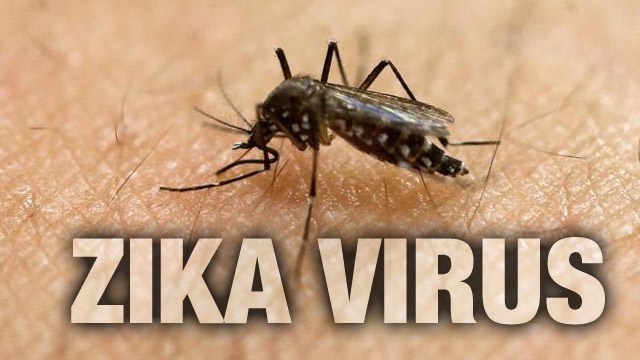
Maryland Zika Update: 85 Cases
According to the CDC’s report from September 1st, there are 16,610 confirmed Zika cases in the U.S, including 2,698 cases in the continental U.S. and 13,888 cases in the U.S. territories of Puerto Rico, the U.S. Virgin Islands and American Samoa and 85 in Maryland. In addition, late July marked the first time Zika began spreading locally in 2 neighborhoods of Miami, Florida.
 Time to panic?
Time to panic?
“Certainly not. But it is time to become prepared and learn more,” according to Dr. Michael Freedman of Evolve Direct Primary Care. Dr. Anthony Fauci, director of the National Institute of Allergy and Infectious Diseases put it this way: “I’m not an alarmist…but the more we learn…the more we look around and say this is very serious.“
Risk in Maryland?
At this time, all 85 cases of Zika found in Maryland have been related to travel–there has been no person to  person spread. “The Asian tiger mosquito, which is common in Maryland, can spread the virus; and there is a risk of Zika being imported into Maryland through international travel and being spread by local mosquitoes.” In addition, according to the Maryland Dept of Agriculture, the Asian Tiger Mosquito has become the primary pest species in Maryland.
person spread. “The Asian tiger mosquito, which is common in Maryland, can spread the virus; and there is a risk of Zika being imported into Maryland through international travel and being spread by local mosquitoes.” In addition, according to the Maryland Dept of Agriculture, the Asian Tiger Mosquito has become the primary pest species in Maryland.
“The level of alarm is extremely high, as is the level of uncertainty.” —Margaret Chan, WHO’s director-general.
According to the CDC, if you are diagnosed with Zika, it is very important that you protect yourself from further mosquito bites to avoid infecting a new mosquito who will then infect a new person and perpetuating the cycle (see right).
Symptoms of Zika
Around 80% of people infected with the Zika virus have either mild symptoms or no symptoms at all. The primary symptoms to look for are:
- Fever over 101 F
- Eye pain and redness (conjunctivitis)
- Joint pain (often smaller joints of hands and feet)
- Rash
- Headache
If you develop a fever, rash, joint or muscle pain, or red eyes, you should be seen by a doctor. To schedule with Evolve Direct Primary Care, click here.
In addition to microcephaly, the paralyzing condition called Guillane-Barre has been diagnosed in a growing number of Zika patients. And The New England Journal of Medicine reports that the Zika virus may be associated with acute disseminated encephalomyelitis (ADEM), an inflammation of the brain and spinal cord.
How to Prevent the Spread of Zika
 Step one in prevention is to educate yourself–and your family and friends. Reading and share this and/or similar articles is important.
Step one in prevention is to educate yourself–and your family and friends. Reading and share this and/or similar articles is important.
The CDC recommends the following measures to prevent Zika and mosquito-born illnesses:
- Before mosquito seasons
- Mosquito education campaigns
- Remove and dispose of any water holding containers
- Cover, dump, modify or treat large water-holding containers with long-lasting larvicide.
- Reduce adult mosquito resting sites by keeping vegetation trimmed and tall grass cut
- During mosquito season

- Educate friends/neighbors: During the first week of illness, an infected person can infect mosquitoes, triggering local outbreak
- Educate friends/neighbors to constantly get rid of water holding containers outside
- Educate friends/neighbors about reported cases of disease and urge them to use:
- Insect repellents
- Window and door screens to prevent mosquitoes from entering the house
- Air conditioning
- Adult mosquito control
- Don’t forget to treat storm drains, roof gutters, etc
 As a community
As a community
- Organize clean-up campaigns
- Target disposable containers, including large junk objects that accumulate water (broken washing machines, refrigerators, toilets) in buildings, public areas, etc.
“The elimination of the breeding containers for tiger mosquitoes is largely the responsibility of the individual to conduct thorough and repeated efforts to remove or drain all such containers on his/her property. On an individual basis, this is not a large task. The original cleanup of containers on a residential area should take no more than a few hours and periodic maintenance to keep each yard free of breeding containers will require a minimal time investment by individual residents.”—The Maryland Department of Agriculture.
If you do become ill and have any doubt, get seen by a physician immediately. If you can’t be seen right away, Evolve Direct Primary Care is happy to see you same day by scheduling on-line here or calling 844-322-4222.
If you find these health and wellness updates helpful, follow Evolve Medical on Facebook, Twitter, Instagram or Google+.

Evolve Medical provides the Highest Rated Primary Care and Urgent Care to Annapolis, Edgewater, Severna Park, Arnold, Davidsonville, Gambrills, Crofton, Waugh Chapel, Stevensville, Pasadena and Glen Burnie.

